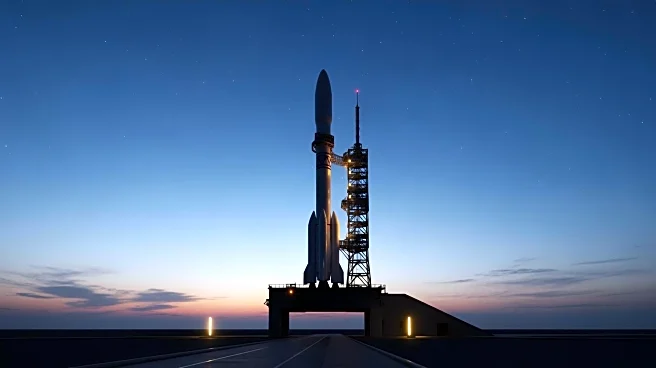What's Happening?
Airbus, Thales, and Leonardo have announced a merger of their space businesses to form a new company aimed at enhancing Europe's strategic autonomy in the space sector. This merger is a response to increasing competition from global players like Elon
Musk's Starlink. The new entity will employ 25,000 staff and have an annual turnover of approximately €6.5 billion ($7.5 billion). The merger is expected to generate significant synergies in operating income within five years. The company will focus on critical infrastructure and services related to telecommunications, global navigation, earth observation, science, exploration, and national security. Airbus will hold a 35% stake, while Leonardo and Thales will each hold 32.5%, operating under joint control with balanced governance.
Why It's Important?
The merger is significant as it aims to bolster Europe's position in the global space market, ensuring competitiveness against major international players. By consolidating resources and expertise, the new company seeks to enhance Europe's industrial and technological capabilities in the space domain. This move aligns with European governments' ambitions to strengthen their strategic assets and maintain autonomy in space-related applications. The merger could potentially lead to increased innovation and efficiency in the European space industry, benefiting sectors reliant on space technology.
What's Next?
The new company is expected to be operational by 2027, with plans to serve as a trusted partner for national sovereign space programs. The merger may face scrutiny from European Union anti-trust officials concerned about industry concentration. However, the firms argue that the consolidation is necessary to compete globally. Stakeholders, including European governments and industry leaders, will likely monitor the merger's progress and its impact on the space sector.
Beyond the Headlines
The merger could have long-term implications for Europe's role in international space exploration and technology development. By pooling resources, the new company may drive advancements in space technology, potentially influencing global standards and practices. The consolidation may also prompt other regions to consider similar mergers to enhance their competitive edge in the space industry.















